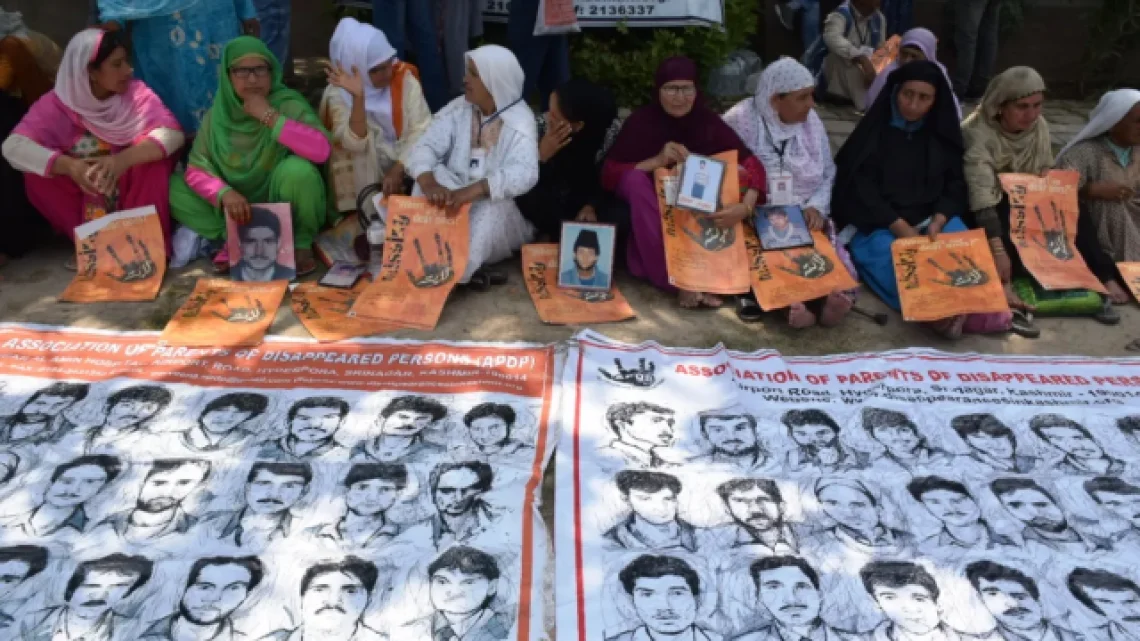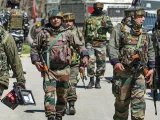
A Crisis of Enforced Disappearance in IIOJK
September 5, 2024The enforced disappearance crisis in Indian-illegally occupied Jammu and Kashmir (IIOJK) demands urgent attention. Since the insurgency began in 1989, over 8,000 people have disappeared, according to local human rights groups like the Association of Parents of Disappeared Persons (APDP).
Enforced disappearances typically involve individuals being taken into custody by Indian security forces, including the Indian Army, and then vanishing without a trace. These incidents occur during operations or detentions, often with no formal charges or legal recourse.
Cordon and Search Operations (CASOs) are notorious for the disappearance of individuals. During these operations, security forces surround areas and conduct house-to-house searches, resulting in many individuals going missing.
Custodial detention is another method. Those detained for interrogation frequently disappear, with no formal charges or legal proceedings. This lack of accountability makes it easier for the Indian Army to deny responsibility.
Reports also indicate the existence of secret interrogation centers where detainees face severe torture. Many who disappear are believed to have died under torture or been summarily executed.
In 2011, the IIOJK State Human Rights Commission (SHRC) uncovered 2,730 unmarked mass graves in Bandipora, Baramulla, and Kupwara districts. These graves contained over 2,900 bodies. Human rights groups suggest many of these individuals were victims of enforced disappearances, killed and labeled as “unidentified militants” to conceal extrajudicial killings.
The Armed Forces Special Powers Act (AFSPA) provides immunity to security forces, shielding them from prosecution for actions taken in the line of duty. This legal protection fosters a culture of impunity, where enforced disappearances and other violations are seldom investigated or prosecuted.
Efforts by families to seek justice often fail due to the lack of accountability and systemic protection for security forces.
The Pathribal Fake Encounter (2000) involved the killing of five villagers, falsely labeled as militants responsible for a massacre. Despite evidence proving their innocence, no accountability was established.
The Kunan-Poshpora Incident (1991), known for mass rapes, also saw enforced disappearances of several villagers, whose fates remain unknown.
Families of the disappeared, often termed “half-widows,” endure severe hardships. They live in perpetual uncertainty, struggling with the trauma of not knowing their loved ones’ fates. The APDP, led by Parveena Ahanger, continues to document these cases and advocate for justice.
Human rights organizations, including Amnesty International and Human Rights Watch, have highlighted these issues, urging the Indian government to investigate. The UN Working Group on Enforced or Involuntary Disappearances has also called for action, but these recommendations have been largely ignored.
The Indian Army consistently denies involvement in enforced disappearances, labeling victims as militants or terrorists. The government’s refusal to repeal AFSPA or hold security forces accountable perpetuates the cycle of violence and impunity.
The situation in IIOJK remains dire, with enforced disappearances continuing, especially during heightened military activity. The region’s heavy militarization allows these violations to persist with little fear of reprisal.
Enforced disappearances in IIOJK represent a grave human rights crisis, with the Indian Army playing a central role. The systemic lack of accountability exacerbates the suffering of victims and their families, underscoring the urgent need for reform and justice.

